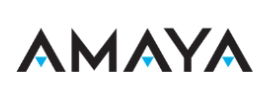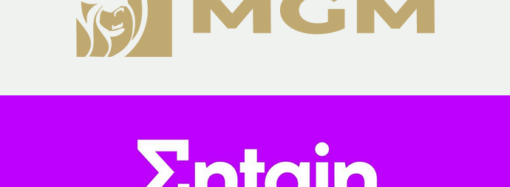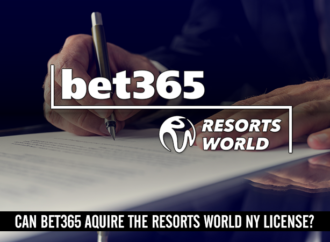The news was abuzz last month when it was revealed that Amaya CEO David Baazov and CFO Daniel Sebag had been named in an investigation by the Autorité des Marches Financiers (the body mandated by the government of Quebec to regulate the province’s financial markets) relating to trading activity prior to Amaya’s purchase of PokerStars.
The news was abuzz last month when it was revealed that Amaya CEO David Baazov and CFO Daniel Sebag had been named in an investigation by the Autorité des Marches Financiers (the body mandated by the government of Quebec to regulate the province’s financial markets) relating to trading activity prior to Amaya’s purchase of PokerStars.
Amaya Gaming’s stock was trading at just over $5 a share on the Toronto Stock Exchange for most of early 2014 but surged to over $10 a share on June 5th for no apparent reason and then doubled again to over $20 a week later after it was announced  that Amaya Inc. purchased PokerStars for $4.9 billion. The action on the stock apparently raised the eyebrows of the Canadian regulators and in December, 2014 the RCMP and the Autorité des Marches financiers entered Amaya’s headquarters apparently to search for any evidence of insider trading. In a move to alleviate concerns of investors Amaya released the following statement:
that Amaya Inc. purchased PokerStars for $4.9 billion. The action on the stock apparently raised the eyebrows of the Canadian regulators and in December, 2014 the RCMP and the Autorité des Marches financiers entered Amaya’s headquarters apparently to search for any evidence of insider trading. In a move to alleviate concerns of investors Amaya released the following statement:
“To provide clarification on a media report, Amaya Inc. (the “Corporationâ€) (TSX: AYA) confirmed that the Corporation and its officers are cooperating with the Autorité des Marches Financiers, the securities regulatory authority in the Province of Quebec (the “AMFâ€), in an investigation with regards to trading activities in Amaya securities surrounding the Corporation’s acquisition of Oldford Group in 2014.
To the Corporation’s knowledge, this does not involve any allegations of wrongdoing by the Corporation. Amaya will continue to cooperate, if and as requested, consistent with our practice to always cooperate with regulatory authorities.
The Corporation will continue to monitor the investigation if and as it proceeds. The investigation has had no impact on Amaya’s business operations, employees or companies.â€
The situation had remained stagnant until last month when it was announced that Amaya’s CEO and CFO were named in the investigation although they were vindicated for any insider trading themselves.
While the investigation may lead nowhere the speculation itself could still be enough to disqualify Amaya Gaming from operating in California as a result of the bad actor clause. Right now it appears that California will pass an online poker bill in the near future with a bad actor clause. The argument seems to be which operators will be included?
The Morongo Tribe, which has a partnership with PokerStars wants the company excluded from the clause while the other tribes want them included due to “past wrongs.†The truth of course is that the other tribes, who will either set up their own poker network or partner with other casino companies just don’t want the competition. There was some hope that the purchase by Amaya could somehow soften the stance of the other tribes but this revelation of insider trading could give the other tribes more fuel to demand that Amaya be disqualified as a rogue operation.
 The timely news also comes on the heels of PokerStars preparing to operate in New Jersey. Amaya set up a partnership with Resorts Casino in New Jersey to operate its poker room from the casino floor, with the hope of possibly starting operations around the time of the World Series of Poker. While Caesars owns the WSOP there was belief a PokerStars startup around that time could benefit both companies. Nevertheless, PokerStars has yet to receive the license and the WSOP is in its final day before the November 9 final table, so that option was not realized.
The timely news also comes on the heels of PokerStars preparing to operate in New Jersey. Amaya set up a partnership with Resorts Casino in New Jersey to operate its poker room from the casino floor, with the hope of possibly starting operations around the time of the World Series of Poker. While Caesars owns the WSOP there was belief a PokerStars startup around that time could benefit both companies. Nevertheless, PokerStars has yet to receive the license and the WSOP is in its final day before the November 9 final table, so that option was not realized.
Most believe that Pokerstars’ delay was due to Chris Christie’s interference in hopes of catering to Sheldon Adelson who is trying to block all online gambling. Christie denies the claims but his recent announcement about a presidential run and the fact that Adelson is known to pour money into Republican friends running for office has many convinced the speculation is valid. Nevertheless Christie has been coming under a lot of fire for the fact PokerStars is not operating in New Jersey yet and this could give Christie a big out. Christie can now approach the New Jersey Division of Gaming and argue that as long as Amaya is under investigation for illegal activities they should not receive a license. And Christie would have precedence for that decision since operators are always scrutinized for past suspicious activities before being cleared. And there is no doubt the investigation will go on for some time and possibly even after the 2016 U.S. elections at which time Christie will no longer be beholden to Adelson.
But it’s not just the Sands and Adelson that are opposed to PokerStars operating in the U.S. While the other casinos may try to appear in favor of PokerStar’s return that is clearly not true. The majority fear PokerStars’ name recognition alone will leave them in the dust. Sources close to me say that the other casino giants were the main reason that PokerStars was prohibited from purchasing the Atlantic Club casino in 2013. Despite being given a “clean bill of health†from the feds after paying the $714 million extortion money to the DoJ to help the government pay off U.S. Full Tilt creditors and buy the useless Full Tilt Poker brand, the American Gaming Association immediately was in front of The Division of Gaming Enforcement (DGE) lobbying to have Poker Stars disallowed from entering as a result of their past in the United States market. And that directive clearly came from the AGA members who feared that PokerStars would kill any chance of their products being successful. It worked as the deal fell through when PokerStars failed to meet the deadline to obtain a temporary gaming license.
The question of course is can the U.S. casino giants and U.S. politicians actually have influence on the Canadian government and its security exchange?
The answer is an absolute “yesâ€. The two countries work very closely together and it’s understood that if the U.S. raises concerns about security violations, the Canadian government will almost always follow through. This is particularly true since Amaya is doubly listed on the Toronto Stock Exchange and The Nasdaq. It also can’t be overlooked that Caesars has a lot of clout in Canada as owners of Caesars Windsor casino.
This latest delay may be exactly what U.S. casino operators and regulators want as Poker Stars tries to gain a foothold back in the U.S. market.
Read insights from Hartley Henderson every week here at OSGA and check out Hartley’s RUMOR MILL!

















Leave a Comment
Your email address will not be published. Required fields are marked with *